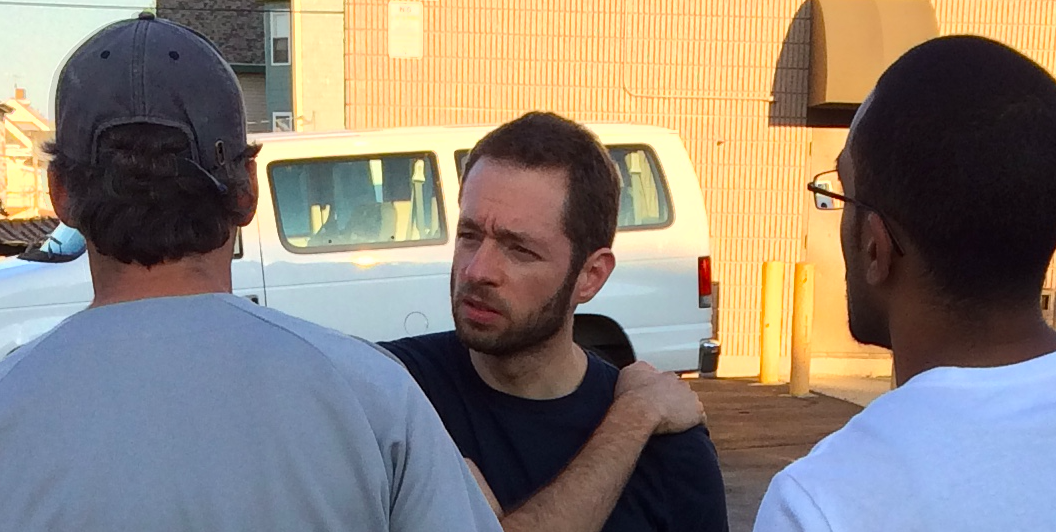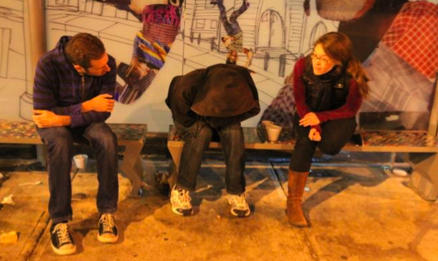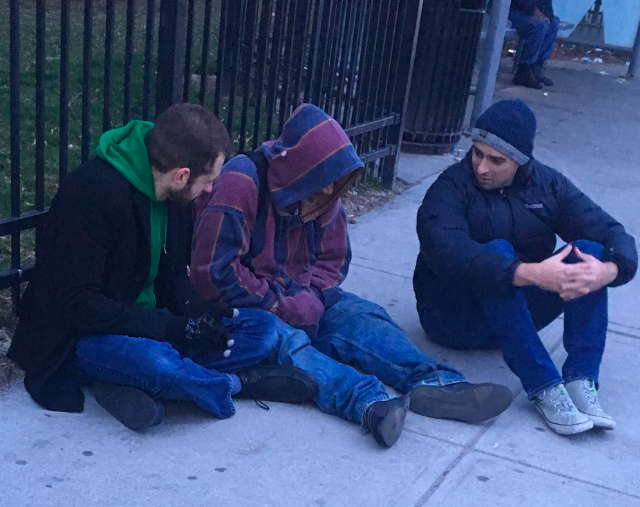The Clinician Cameo is a monthly interview series with a clinician in the Brown Department of Psychiatry & Human Behavior.

Craig Kaufmann, M.D., specializes in providing care to people experiencing homelessness. A clinical associate professor in the Brown Department of Psychiatry & Human Behavior (DPHB), Kaufmann is a psychiatrist at Housing First Rhode Island, a program of Thrive Behavioral Health, and the Providence VA Medical Center. He also conducts street outreach every Tuesday evening as part of ACCESS-RI, a program of House of Hope CDC.
Kaufmann talks with DPHB about the relationship between homelessness and trauma, his “doctor voice,” and kindness as a clinical skill.
The unsheltered population in Rhode Island has grown by 56% since 2020 – the second-highest increase in homelessness nationwide. Are you seeing that in your work?
Definitely. When we do outreach, there are more encampments, more people living in cars. There are not enough shelter beds to keep up with the number of folks who are homeless. When that happens, the homeless community – a community of people trying to get through it together – becomes less reliant on the safety net. The danger is that overdose rates go up with people being more isolated and not being seen, should they overdose.
When medical students join you in street outreach, what do they see?
We may walk an area with a high concentration of people who are homeless or drive to different encampments to check in with someone. You hear how someone's experience with the legal system or carceral system is intimately tied to their homelessness. You notice the food deserts and swamps, that the only thing open at night is fast food and liquor stores. You get a sense for how people rely on one another. You see how much work it takes to survive.
You’ve said before that the story of homelessness is the story of trauma. For many of the people you see, how does trauma affect their relationship with health care?

Many people who are homeless have a history of trauma in their upbringing and their adulthood. Sometimes our systems of care can be re-traumatizing for them. It can be as simple as the setup of a waiting room – if we come up behind patients to announce their name, that can be alarming – or the way we deal with missed appointments. For the average person living outside, making it to a regularly scheduled appointment may not be realistic. It can feel punitive to be told, “You miss an appointment, you can't come back.”
Then there's this idea that people experiencing homelessness overutilize the emergency room. But lots of times in outreach, we encounter somebody who clearly needs to go to the emergency room, but doesn't want to go because of past experiences – if they heard themselves referred to as “the homeless person in bed number three,” for example.
One of the wonderful things about outreach is the gradual relationship building that comes with trust and flexibility. There are people we meet who pass on care for months, but as they get to know us, may engage down the road. When they do, they may be interested in mental health treatment, but not in taking psychiatric medication. We respect their boundaries. The approach is: If you choose to take medicine or not, I'm still on your side, and we can talk about that.
How do you begin to address mental health in someone who has so many other basic needs?
When I initially started doing outreach, I wanted to rush in and be the psychiatrist who prescribes medication and gets people connected to care. But the best outreach programs are driven by social work, not medicine. What people really need is to be connected to services. They need to be housed. So I see my role as supportive. They may need a physician's signature to get a disability bus pass or disability payments and services that they clearly need.
Another common scenario might be meeting somebody who was recently hospitalized and discharged and has run out of medication. Or they were recently incarcerated and treated with medicines then, and now have only two weeks of medicine left. I can provide that bridge prescribing.
My role is sort of like an ambassadorship. If people have not had the best experiences in the mental health care system, I can give a friendlier face to care. That's been particularly helpful with people who may have only received care when they were involuntarily hospitalized, which may be quite appropriate, but doesn't feel wonderful.
In those interactions, do you try to downplay that you’re a psychiatrist?

I definitely don't lead with it. I’ll say, “I’m Craig doing outreach with House of Hope,” and start chatting. Should they describe something related to mental health, I'll mention I'm a psychiatrist and offer to help.
For people who are apprehensive, it can be disarming in a good way to realize this person who brought me a cup of coffee or gave me a ride to the shelter is also a psychiatrist.
How do you reconcile your desire to make people well with all the limitations on what you can do?
I think the desire to help can be a wonderful motivation, but it’s a double-edged sword, because sometimes the need is so enormous, there's only so much we can do. I used to say people slip through the cracks. But more accurately, people often get pushed through the cracks. So it’s frustrating when I get someone connected to medical care, but they're still homeless and facing all these structural barriers.
I do struggle with it, but teaching helps. Students see the gaps in care and try to make a difference. There was a group of medical student volunteers who came up with an idea for a patient navigator program, where students pair up with a patient who's experiencing homelessness to help them make appointments and meet them at the appointment like a friend or family member would. That program, the Rhode Island Medical Navigator Partnership, has continued to help shepherd folks through the care system. These things don't solve the problem, certainly, but it’s encouraging to see those gradual, small improvements.